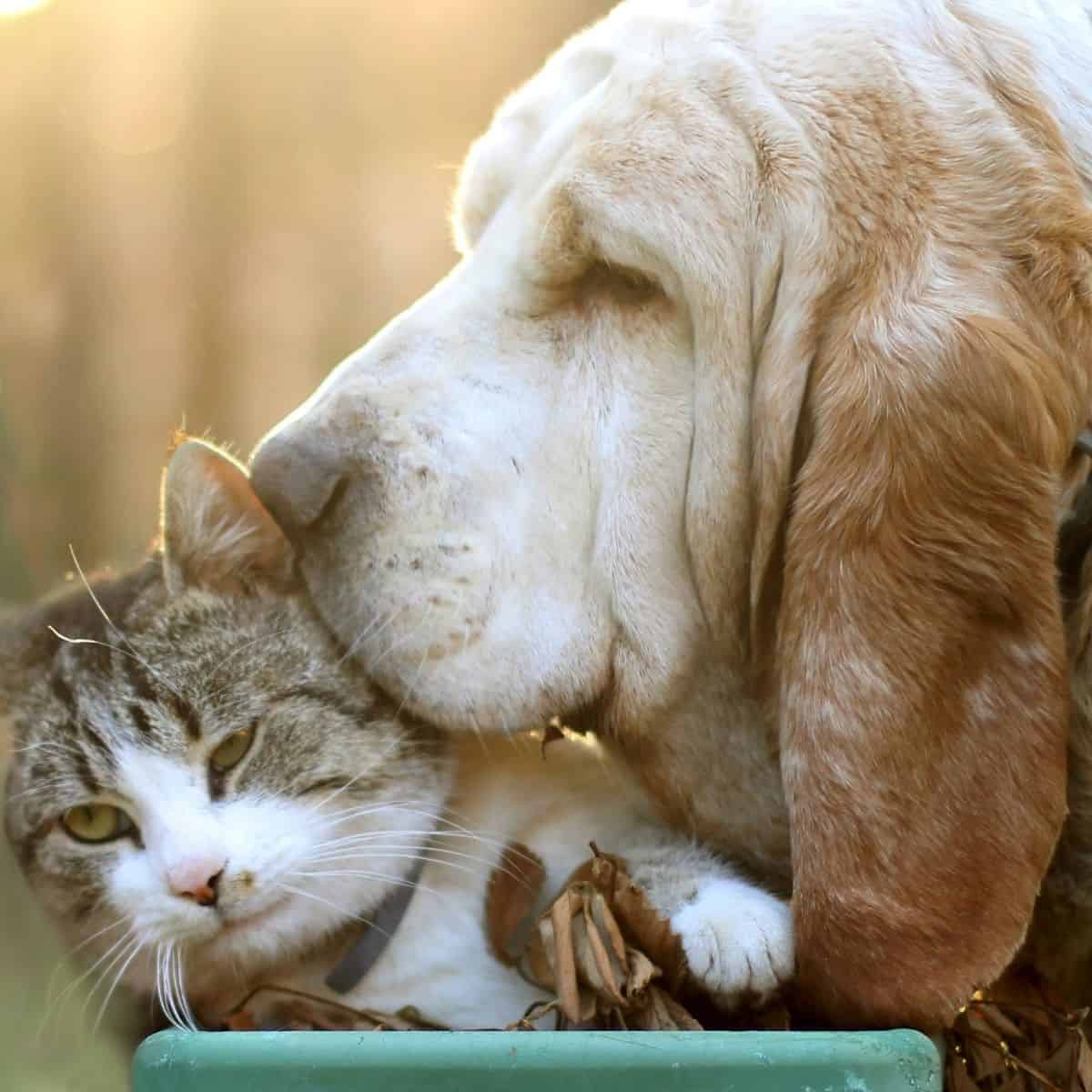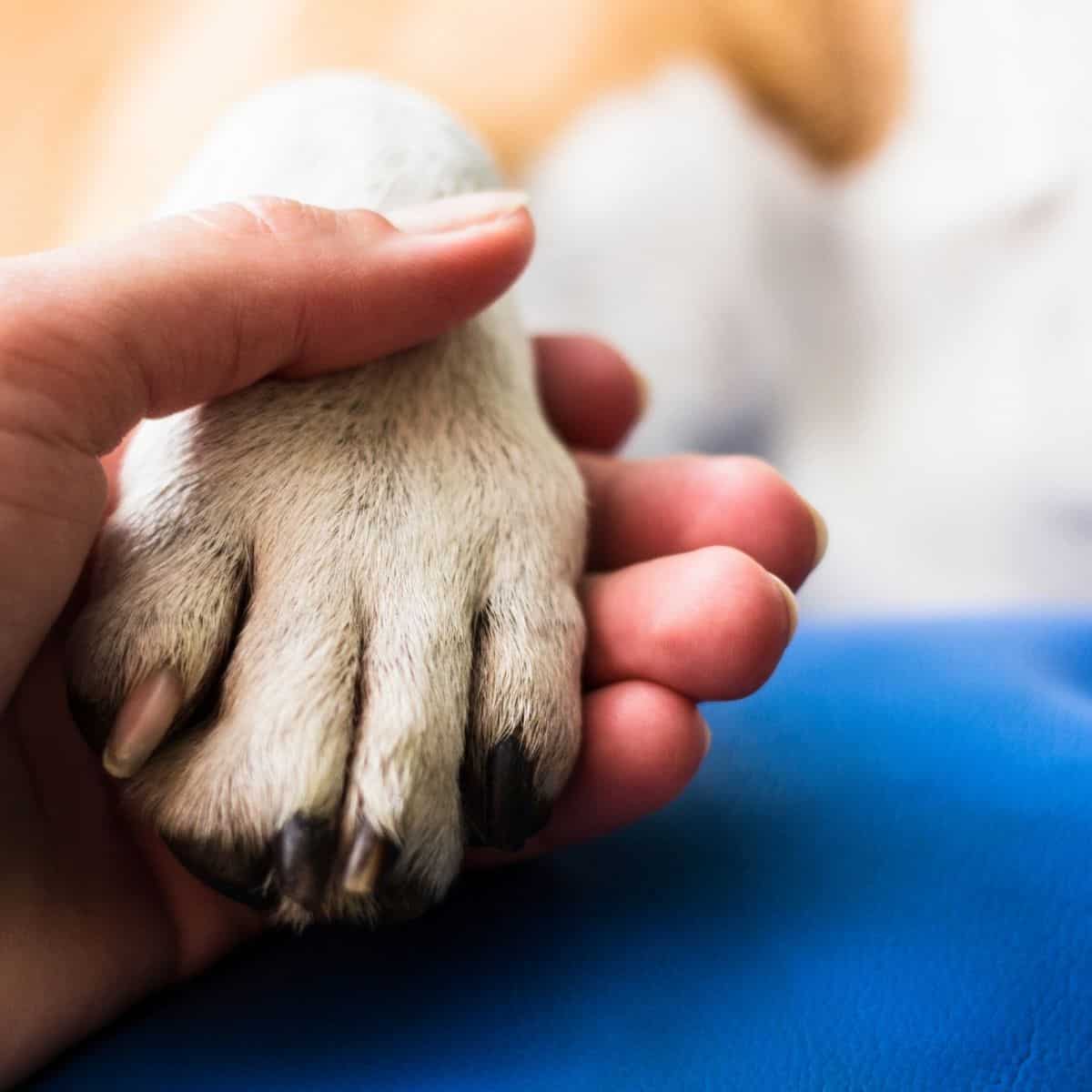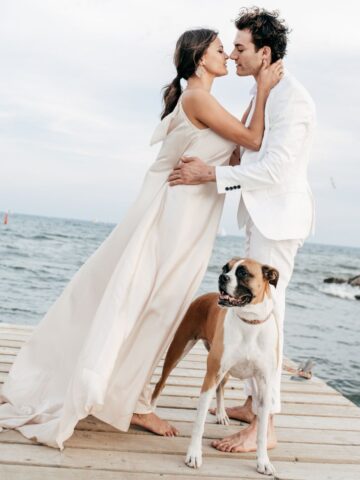Coping with the death of your pet
Whenever you lose someone you love, you feel sorrow, express grief, and expect friends and family to provide comfort and understanding.
Sadly, you don’t always get that understanding when a pet dies. There are still some people who do not understand how important dogs can be in people’s lives, and others may not understand why you’re grieving for “just a pet.”
For many people, dogs are the best part of our families. I feel that way about my dogs, Ruby and Callie.
The first step is to know what you can expect when your dog dies. There’s no way around it. You will feel grief.

Members of the family
We know how important dogs are for most people. We love our pets and consider them members of our family.
Often, pet owners celebrate the birthdays of their pets, confide in them, and carry pictures of them in their wallets.
Therefore, when a beloved pet dies, it isn’t unusual for you to feel overwhelmed by your grief.
Dogs provide companionship, love, and acceptance. Knowing it is okay to grieve when a pet dies is the first step toward coping with dog loss: understanding this bond between humans and animals.
It is possible to overcome your loss and move forward so that memories bring smiles instead of tears.
The Grief Process of Losing a Pet
Grief is an individual experience. It lasts days, weeks, months, or years.
Anger, guilt often accompanies it, and blame. Sometimes people become angry and blame others for the death of their dogs.
People who lose their dogs often feel guilty and blame themselves.
After these feelings subside, you may feel sad about losing your animal friend. You may also be more withdrawn and less active than usual.
Acceptance happens when you accept the reality of your loss and remember your animal friend with decreasing sadness.
Tips for Surviving the Loss of a Pet
Grief is a personal experience. However, you don’t have to face the loss of your furry friend alone.
There are pet-bereavement counseling services, support hotlines or online dog-bereavement groups available.
Here’s a few tips to help you grieve the loss of your dog.
- You should acknowledge your loss. Reach out to others who can listen. Research shows that there are many ways to cope with grief.
- Journal about the loss of your dog.
- Reach out to your dogs breed social group pages to share your feelings.
- Contact your veterinarian’s office to see if they have a pet-loss support group.
Give yourself some closure by preparing a memorial for your dog. You can say “goodbye.” This will allow you to say “I feel sad because my dog died. He was an amazing friend who loved me unconditionally. I miss him terribly.”
Why Does the Loss of a Pet Hurt?
For some people, the death of a dog can be more difficult than the loss of a human person. We form an unbreakable bond with our furry friends. Dogs are very important to people.
When a dog dies, we often feel pain and sadness. People also get depressed after losing their dogs.
You shouldn’t be ashamed or guilty if you’re sad about losing your dog or cat. Some people grieve harder than others, but everyone feels sadness. Your feelings will depend on how much you loved your dog and why you lost him/her.
Dogs do more than just provide companionship. They bring us joy, help people get around, give them emotional support, and make them less lonely.
Grieving over the loss of a dog is especially hard because our dogs are usually very close to us.
- Dogs can help us feel better about ourselves. When we lose our pets, we grieve the loss. There are many ways to deal with this loss.
- We can talk to friends or counselors about how to deal with our feelings.
- Sometimes, we need to get out of the house.
- We can go to a park, walk around the block, or take a drive.
- We should also make sure that we eat well. We could try eating healthier foods.
- We might also try going back to school or work.
How to Take Care of Yourself After the Loss of a Pet
Allow yourself time to grieve. Grieving people need to eat well and get plenty of rest. Healthy comfort food can help them cope with loss.
Cry - Cry as much as you want. It’s healing to get out your emotions and spending a day crying over the loss of your companion will make it easier to face the next day.
Keep Busy - The last thing you may feel like doing is keeping yourself busy. However, focusing on a simple chore really helps. Focusing on a project, task or something else help you get out of facing a wall of grief. It won’t make your grieving go away, but it can help to manage the pain.
Remember your dog - Plan a memorial service for your dog to bring some closure of their passing for your dog and yourself. This can be in the form of a burial ceremony, or simply taking 10 minutes and talking to your pet out loud, remembering the good times and saying “goodbye.”
Love on another dog - if you have another dog, give it extra love. They are grieving as much as you are and may need the extra love.
Give yourself time - Be honest with yourself. You’re hurting, much like a wound. You’re not being silly, weak, crazy or overly sentimental. Give yourself time to grieve and feel better.
How to Help Kids with the Loss of a Pet
Your kid’s dogs are important to them. Plus, losing a dog may be a child’s first brush with death.
Children who lose a pet may blame themselves for not being there to save the pet. They can feel depressed, frightened and even guilty. That’s why expressing your own grief is helpful for children. It helps them understand that sadness is okay.
By letting your child know you are grieving, it can help to reassure your child that sadness is okay and give them a means to work through it with you.

How to Help a Senior Cope with the Loss of a Pet
Seniors often have a dog to help them feel less lonely. A dog can help seniors ease the pain of losing loved ones. Therefore, coping with the loss of a dog can be especially hard for seniors.
They may feel a huge amount of loneliness after a loss of a dog.
After losing a dog, the decision to get another dog can become more complicated by the possibility of the new dog outliving the senior and who’s going to take care of the dog.
Because of these reasons, it’s important that senior dog owners learn to cope with the loss of a dog and relearn a sense of purpose in living without a new dog.
Joining a support group, interacting with friends and family or even calling a pet-loss support group can help with the emotions of losing a dog.
How to Help Other Pets through the Grief Process
Do dogs have emotions? Yes, they do!
Dogs are loyal creatures who love people unconditionally. Dogs are very intelligent and sensitive. They can be fearful, aggressive, and jealous. A lot of dogs communicate their feelings through body language and facial expressions.
Pets can get upset when they lose their other doggie friends, brother or sister.
A surviving dog may whimper, cry, or refuse to eat or drink. Try to give them time to adjust to the situation and also to stay calm yourself.
Give your surviving dogs lots of care and try to maintain a normal routine. Sometimes, getting a second dog can help the surviving dog.
How to Know if your Dog is mourning the loss of another Pet
When a dog loses a companion, they grieve and respond to the changes in their environment.
- Your dog may be depressed and listless.
- They may have a decreased appetite.
- Sleeping more than usual is normal.
- They may move more slowly, sulk around.
People recognize these changes as the same signs of mourning that dogs display. The common denominator is the loss of a companion.
How to Help your Dog Cope with the Loss of a Pet
Dogs can become sad when they lose other pets close to them. You should spend extra time with your surviving dog to distract them from their sadness.
A few things you can do to help your dog feel better:
- Dogs love games of fetch.
- They also enjoy playing with other pets.
- Petting a dog can make them feel better.
- Taking them for a walk or play a game of fetch.
- You can also talk to your dog about what happened.
Dogs enjoy company - Invite friends over who will interact and play with your dog. Provide entertainment while you’re away. Hide treats in popular places for your dog to find during the day.
Reward good behavior and ignore inappropriate behaviors - Some dogs vocalize or howl without provocation. Try to ignore this behavior. Don’t give your dog a treat when he whines. He’ll learn quickly that whining gets him nothing but a pat on the head. Instead, approach him gently and gently redirect him to another activity.
Dogs need to be around humans to feel safe - When we lose our pets, we should give them time to mourn and adjust to the loss before introducing another dog into the household. This helps make sure that the new dog doesn’t take away any attention from the grieving dog.
Should I get another pet to keep my surviving dog company?
It is tempting to get another pet after your pet passes away, both for your own benefit and so your surviving pet has another companion, but do not rush into this decision.
Only get a new pet if you feel it is the right thing for you, your family, and your pets.
Pet adoption is an important part of life. New pets need time to adjust to their new homes. Don’t rush into adopting another pet without thinking about why you want to do so.
Consider whether you’re ready. And pay attention to how you feel.
Your local animal shelter or rescue might be a great place to find a new friend.






Leave a Reply